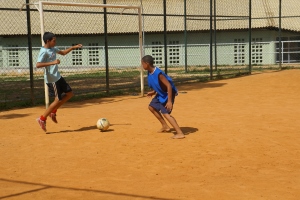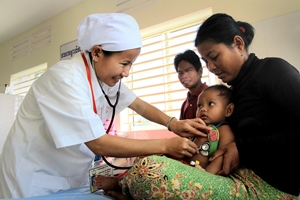Should I Register My Study?

|

|

|

|
The program or intervention you are evaluating should take place in a low- or middle-income country and can be in any domain related to development (e.g., education, health, agriculture, governance, employment). The program should be well defined, and not simply a policy-related variable such as "distance to schools" or cost.
Since RIDIE is defined as a prospective registry, we encourage researchers to register their studies before they begin collecting or analyzing data on program impacts. There are several significant benefits to prospective registration to study authors as well as to the wider research and policy-making communities.
Finally, while RIDIE stresses the importance of using rigorous methods for causal attribution of impact, there is no requirement for studies to meet specific standards of quality or credibility. Registrations are not reviewed in this way, though they are given basic checks for completeness and consistency. It is not the purpose of the registry to evaluate research quality.
